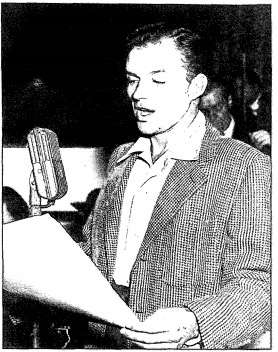His Cartesian Way

Frank Sinatra, once a singer, is now a "text." In November, Hofstra University is staging a conference--"Frank Sinatra: The Man, The Music, The Legend"--that proves that what becomes a legend most these days is cultural theory.
In three days of panels, you can hear learned speculation about Sinatra's music ("Hanging on a String of Dreams: Delirium and Discontent in Sinatra's Love Songs"); his presentation of self ("Frank Sinatra's Second Self: The Transformation of His Personality into His Art"); his meaning to America ("Frank Sinatra: An Artist Whose Creative Expression Amplified the Whispers of the American Collective Unconscious"); his meaning to foreigners ("Frank Sinatra and Belgium"); his ethnicity ("I Get No Kick From Assimilation, Or 'My' Frank Sinatra Problem"); his racial significance ("Doing It 'His' Way? Frank Sinatra, Black Music and the Performance of Whiteness"); his style ("Frank Sinatra and the Endgame of Cool"); his imitators ("Dick Haymes: Sinatra Stand-in, Or the Real Thing?"); his philosophical significance ("'All of Me': The Cartesian Soul of Frank Sinatra"); his movies ("Do You Take Sinners Here? How the Films of Frank Sinatra Brought Catholicism Into America's Pop Culture Mainstream"); his politics ("Frank Sinatra and the American Presidency"); even his relationship to architecture ("Playing the Big Room: Frank Sinatra, The Fountainbleau, and the Architecture of Inclusion"). There's much, much more.
"To think," sang Sinatra, "I did all that." Quiet, Frank. You're drowning out the theory.


Show Comments (1)